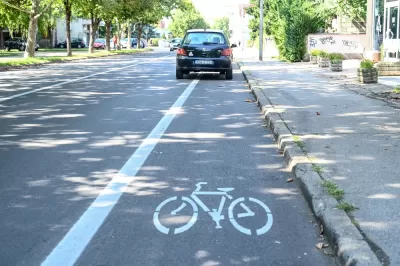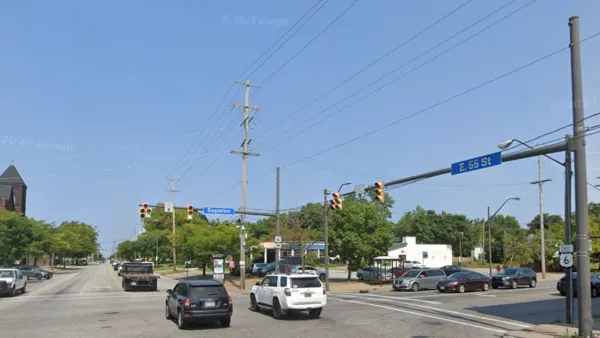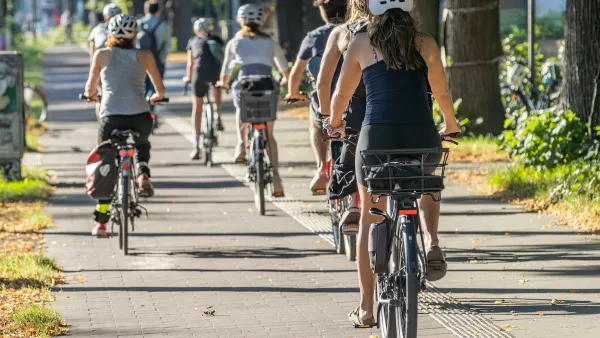The proposal would award people who report blocked bike lanes a percentage of resulting tickets. Critics say the city must address the underlying reasons for blocked bike lanes first.

Ann Arbor, Michigan is the latest city to consider a proposed ‘bounty’ for citizens who report blocked bike lanes, reports Ryan Stanton for MLive. The policy, which would award people who submit a report of a blocked bike lane a percentage of the resulting citation revenue, has also been proposed in New York City and Austin, Texas.
Some Ann Arbor city council members argue the policy would be unfair to delivery workers and other “folks just trying to work” who are the victims of “Planning failures like not requiring drop-off areas for deliveries, creating protected bike lanes without meaningful public input or proper notice of affected property owners, requiring zero setbacks and doing away with parking minimums”—a not-so-tacit admission of the city’s role in creating the problem. City Council Member Erica Briggs, D-5th Ward, says “Solving the problem requires engineering, education and enforcement solutions.”
A recent proposal from Manhattan Borough President Mark Levine would take a different approach in New York that would begin to address infrastructure shortfalls, as another article on Spectrum News 1 describes. “Under that proposal, delivery workers would have access to parking garages to unload and sort packages, some deliveries would be made using larger electric cargo bikes and more curbside loading zones would be added to every residential neighborhood.”
FULL STORY: Should Ann Arbor offer bounty for reporting drivers blocking bike lanes?

Maui's Vacation Rental Debate Turns Ugly
Verbal attacks, misinformation campaigns and fistfights plague a high-stakes debate to convert thousands of vacation rentals into long-term housing.

Planetizen Federal Action Tracker
A weekly monitor of how Trump’s orders and actions are impacting planners and planning in America.

Chicago’s Ghost Rails
Just beneath the surface of the modern city lie the remnants of its expansive early 20th-century streetcar system.

Bend, Oregon Zoning Reforms Prioritize Small-Scale Housing
The city altered its zoning code to allow multi-family housing and eliminated parking mandates citywide.

Amtrak Cutting Jobs, Funding to High-Speed Rail
The agency plans to cut 10 percent of its workforce and has confirmed it will not fund new high-speed rail projects.

LA Denies Basic Services to Unhoused Residents
The city has repeatedly failed to respond to requests for trash pickup at encampment sites, and eliminated a program that provided mobile showers and toilets.
Urban Design for Planners 1: Software Tools
This six-course series explores essential urban design concepts using open source software and equips planners with the tools they need to participate fully in the urban design process.
Planning for Universal Design
Learn the tools for implementing Universal Design in planning regulations.
planning NEXT
Appalachian Highlands Housing Partners
Mpact (founded as Rail~Volution)
City of Camden Redevelopment Agency
City of Astoria
City of Portland
City of Laramie





























